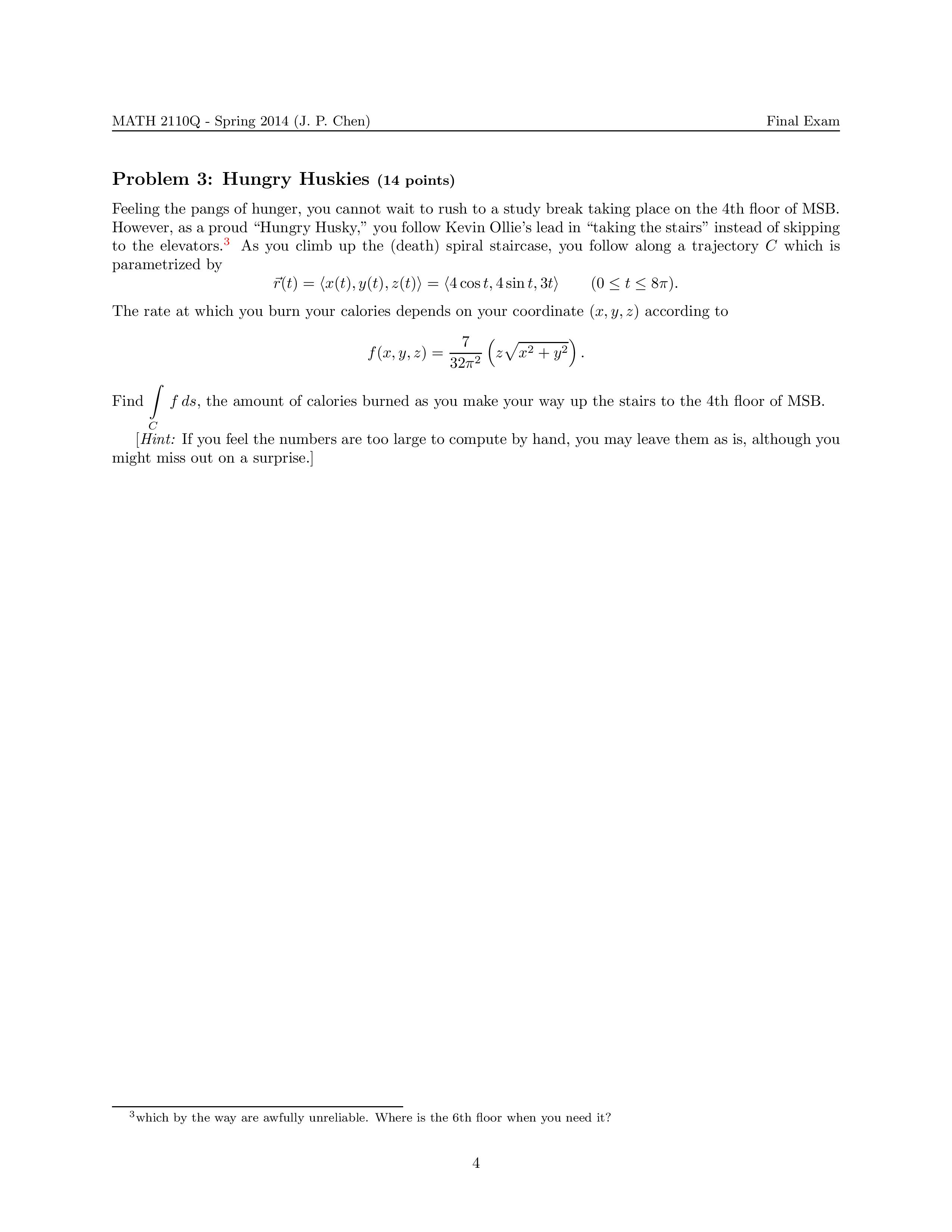
Caveat: This problem has nothing to do with probability. But I decided to include it, for 1) sentimental reasons (see below) and 2) illustration of how it is so hard to write a timely problem in calculus. [In real life nothing is smooth, but calculus teaches students almost everything that is smooth. In order for students to see the passage from smooth objects to rough objects, they have to take a real analysis course (read: uniform approximation, C0 spaces).]
Math concepts used: Arc length, parametrized curves, helix.
Background: MSB, or the Math-Sciences Building, is where I work and where most students take their math classes. The infrastructure of the building is, to put it mildly, outdated. Stairs look like death spirals. People are unwilling to take the stairs, and would rather wait 3 minutes for the ever-so-reliable elevators.
Relevance: "No escalators" originated in a quote by the current UConn men's basketball head coach, Kevin Ollie,
when he took over the job from the retiring Jim Calhoun. Here is the full quote.
"As I embark on this journey I want to just say we gonna take the stairs,
and not the escalator, because escalators are for cowards. We gonna take the stairs, and we gonna get there one step at a time."
At some point (the timing is unclear to me) the Twitter handle @NoEscalators was born. I can say
without a doubt that this is one of the best UConn-centric twitter handles to follow.
What I did: Wrote an integration problem involving parametrized curves. This topic was well covered in multivariable calculus, and should be solvable by any reasonably good student. The numerical "surprise" was in the final answer: 420. (Notice the prefactor 7/(32*pi^2) in the function f? It was intentionally planted.)
Aftermath: This was the first time I tweeted a problem out to @NoEscalators, who then graciously retweeted it out to his followers. This marked the beginning of a working relationship which I am very thankful for.